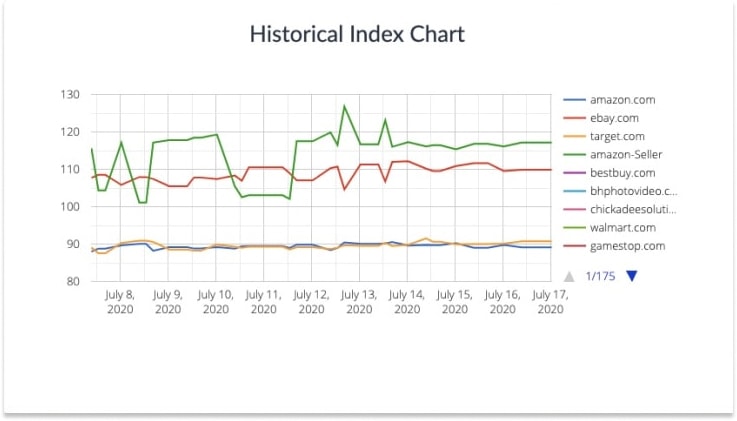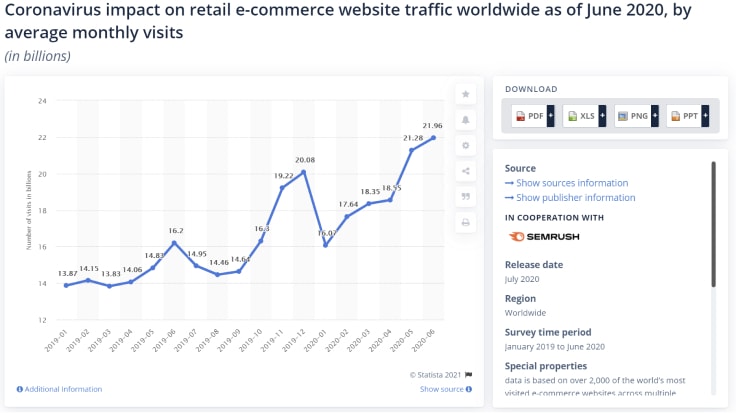Being ambitious — within reason, at least — is a good thing. It’s normal to want to do more, to achieve more, regardless of the project you happen to be pursuing. And since one of the many fundamental strengths of the e-commerce world is that it’s hugely accessible, making it possible to whip up a new store quickly and easily, you can see why online sellers would eye expansion.
The more stores you run, the more money you can make. The more money you make, the more stores you can run. Surely this cycle is a path to complete financial security — right? Well, as you might suspect, it isn’t that simple. While plenty of merchants eventually add to their portfolios with great success, others end up regretting their efforts to expand.
I don’t expect this general point to convince you, so we’ll need to take a closer look at the specifics of why you should think twice before launching additional e-commerce stores. Once we’re done, you should be equipped to make a smart decision. Let’s get started.
Every niche requires in-depth knowledge
Outside of dominant retailers with the immense infrastructure allowing them to compete across the board, it’s notably difficult to compete outside of niches. Selecting and targeting a niche allows a seller to have a realistic chance of appearing prominently in SERPs and building a potent brand. But the thing about running a niche store is that it requires niche expertise.
This is why it always makes sense to start with a store that caters to a niche you’re passionate about. An exercise fanatic might start selling nutrition products, for example, because their awareness of nutritional demands would help them stand out and choose the right products. But even in that set niche, there’s so much scope for growth and improvement.
Suppose that you run such a store and possess the awareness necessary to make it a hit. With that success achieved, you become tempted to launch another store — but do you have such a passion for any other niche, let alone the vital expertise? It’s possible that you do, but unlikely. And without that knowledge, you’ll have a really hard time making that store a success.

You can give it a decent shot, of course. You can draw upon price comparison software (see above) to ensure that your prices are competitive, regularly browse social media to get an idea of what people are looking for, and reach out to experts in that niche for guidance. You’ll likely get decent results, but it’ll still constitute a massive risk. Due to this, it’s far better to fully immerse yourself in a niche before trying to sell in it. That way you can draw upon the same software solutions but back them up with a wealth of relevant knowledge and skills.
You’ll be tasked with juggling multiple systems
Running just one store, even one that only operates online, can be complicated — but there are things you can do to mitigate the impact of that complexity, largely involving automation and centralization. Consider the available options. You can streamline your content marketing process through the use of a content repurposing tool, for instance, ensuring that the blog posts you put so much time into get opportunities to collect views through your social media feeds.
In the above video, you can see how Meet Edgar allows the automatic generation of social post variations. One comprehensive piece of content can be spun into numerous unique updates, allowing for an incredible economy of output leading into a single analytics feed. Digital analytics can be dense at the best of times, but it’s hugely valuable — and when you’re using just one account, you can steadily refine it through integrations and customizations.
And when it comes to the all-important process of providing customer support, you can speed things along by implementing a shared inbox, using team inbox software to allow your support assistants to track all their customer conversations (regardless of source) in one online portal. In short, you can ramp up operational efficiency without leading to significant confusion.
But this isn’t the case when you’re running several e-commerce stores, because you can’t reasonably allow any substantial overlap. The notion of having a shared inbox for multiple sites is deeply flawed: what happens when a message about an order placed through one site gets accidentally added to the chain of a conversation about an issue pertaining to a different site?
Separate financial management, customer communications, advertising… And if you don’t hire a distinct team for each store, you’ll have limited scope for productivity. Your workload will skyrocket, as will your stress level. Those who do well at handling several stores are accomplished at delegation, a skill developed over many years. If you don’t have that much experience, it’s better to wait until you do.
Busy periods can (and often do) coincide
If each store you run has a fully distinct inventory and purpose, you might think that the strain on your time would be appreciably variable. While one store gets busy, another goes through a quiet period, allowing you to turn your attention to the former. But that isn’t how reality works. It’s perfectly possible for interest in many different areas to increase at the same time due to a general rise in economic activity, and this can cause you some major headaches.

As you can see above, year-on-year e-commerce activity was up massively in 2020, and this is spread across all niches. Negotiating a busy period for one e-commerce store isn’t typically so bad, but what about getting through a spike in demand for several? Considering the variability in power and personnel needed to accommodate such spikes, safely running multiple ecommerce stores requires you to be able to marshal immense resources with short notice. Even if you can do that, do you really want to?
Keep in mind that any mismanagement will stain your reputation: not just the reputation of each store mishandled, but your personal reputation (something that you’ve likely been cultivating since before you started your first business). This will subsequently affect everything from negotiations with product suppliers to your promotional efforts. If your root brand becomes known for its inability to run reliable stores, every asset you own will be viewed with skepticism.
If your first store is a hit, there’s no need to rush
Lastly, but perhaps the most significant, comes this straightforward point. If you’re so happy with how your first e-commerce store has gone, then you should be reaping the benefits in the form of brand growth and steady profit. If it isn’t yet consistently profitable, it isn’t really a hit, and you certainly shouldn’t start thinking about starting another store until it is.
And if that profit truly is where you want it to be, then you’re covering your costs and saving money. Things are going well, and you don’t need to rush. In fact, rushing is only likely to cause you problems. Until you’ve kept that profitability up for a year or more, you can’t know how stable it is, as it’s hardly unheard of for a store to do well for six months before flaming out.
Settle down, keep the operation making solid progress, save your profits, and focus on setting your first store up for long-term success. Once you’re absolutely convinced that it’s as close to a sure bet as you’re ever likely to see, you can start thinking about moving on to a second e-commerce store that you can give your full attention.
